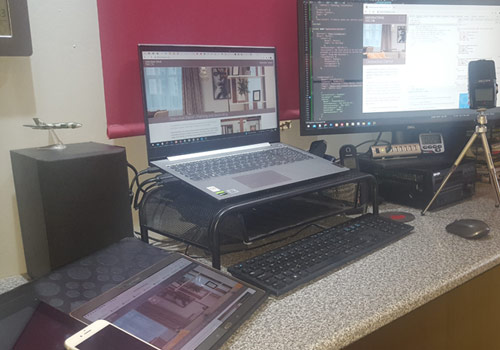Website testing costs
How much does it cost to test a website?
Can the costs be justified?
What is the cost of testing a website?
There is no one size fits all
solution to testing, because there are so many variations from size, complexity and what type and level of testing is needed.
Therefore answering that question in a single sentence can be difficult and potentially inaccurate without some prior discussion and initial assessment.

Factors which can impact testing costs
There are many factors which can influence the cost of testing a website besides it's size.
- What is the nature of the site?
- Is it dynamic and used to sell products, tickets, courses, etc?
- Is it static and mainly used to promote your business and services?
- Ongoing development and the type and frequency of updates can also play a part.
Types of testing
Testing can have a number of distinct purposes too, and so the type of testing requirements can also have a bearing on the cost and time needed.
Some examples could include:
- Usability Testing
Usability Testing takes the perspective of the user. How easy and intuitive is the website to use? Does it meet the expectations of the user, or is it cluttered and confusing to read and navigate through? - Mobile Device Testing
This also takes the perspective of the user, but using mobile devices. Besides the layout being designed for mobile, there may be also technical differences compared to desktop usage. - User Acceptance Testing (UAT)
UAT ensures that the new website, section, page or feature works as intended, and meets the business requirements. - Functional Testing
Functional testing is carried out to confirm that things do what they're supposed to do under all conditions. Manual and automated testing methods could be used depending on time, purpose and budget. - Regression Testing
Regression testing is to ensure that everything that was working correctly prior to new development work still works as intended afterwards. Regression testing is also carried out after bug fixing, because it's not unusual for code changes on one thing to impact something else which had previously worked fine.
For many of the above types of testing, test plans and test scripts may be required, which will ensure that testing is focused, methodical, efficient and thorough.
It is therefore easy to understand why quoting for testing without prior discussion is not realistic, and could easily result in significantly under or over charging.
Some examples
Let's consider a couple of examples
For simplicity, let’s compare two 10 page websites. One is static, and the other is dynamic.
A static 10 page website which displays the same content for all visitors is likely to cost less to test than a dynamic 10 page website, which provides options based on customer type, selections made, location, etc.
Dynamic variations can have a
big impact on testing requirements
Dynamic websites can have many factors which are able to present different users with different experiences in the customer journey and buying process, and each those variations and the functionality used could require separate tests to be carried out.
Such variations could result in certain features and options being displayed or suppressed, and impact things such as promotional offers, delivery options, cancellation options, terms and conditions, and a seemingly endless number of variables.
Therefore testing a static website is likely to take far less time than would to plan and test a dynamic website.
Getting the most out of your testing budget
We all want good value, and that includes getting the maximum return out of the budget you allocate to your website.
You budget allocation could typically include design, development, and of course testing to make sure that it's error free and does what it is supposed to do.

Website testing on a tight budget
As a guide, testing a static website of up to 10 pages starts at around £499
This will typically consist of:
- usability testing of each page on different desktop browsers (which can be supported by screen recording with real-time narration)
- usability testing of each page on Android and iOS mobile devices (ie Samsung Galaxy and iPhone)
- usability testing of each page on Android and iOS tablets (ie Samsung Galaxy Tab and iPad) in both landscape and portrait and orientations devices
- link analysis (checking for broken links, and also use of relevant link content)
- image analysis (checking for missing or oversized images, use of dedicated images for desktop v’s mobile)
- semantic HTML checks (ensuring the presence and optimal use of title tags, h1 tags, meta-description, OG tags and schema mark-up)
What happens when we find a problem?
Depending on the nature of any bugs or defects found, those could be reported... along with the steps to re-create them... in a way to suit your needs, whether that be in a bug tracking tool such as Jira or Trello, or a document or spreadsheet.
Screen recordings can also be a use way of illustrating issues found.
Consider the consequences of NOT testing
What would happen if part or all of your website stopped working?
At best it could frustrate customers, whilst at the other end of the scale it could lose £10s to £1000s in sales each hour the site is not working. That could also lead to complaints and bad reviews which could have a negative impact on your business long after the problems with your website have been resolved.
But even if it is working, the usability or user experience (UX) aspect of the website or individual pages or components could lead to people leaving without buying.
Bear this in mind...
If a bug makes it to the customer, it's either because the quality team missed it, or you didn't have anyone test it. So whether you have a one off need for testing, or the need for ongoing testing and collaboration for new sections or features being added to your website, get in touch.

